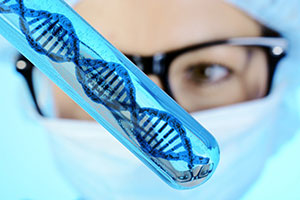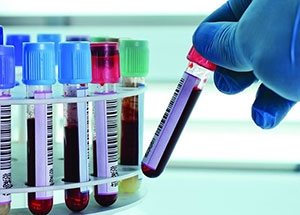 Karyotyping is a method of cytogenetic research, which consists in the study of human chromosomes, their quantitative and qualitative composition. Since the karyotype of a person, the totality of all the signs of chromosomes, is constant throughout life, the analysis is carried out once.
Karyotyping is a method of cytogenetic research, which consists in the study of human chromosomes, their quantitative and qualitative composition. Since the karyotype of a person, the totality of all the signs of chromosomes, is constant throughout life, the analysis is carried out once.
Karyotyping analysis
Most often, the object of research is lymphocytes obtained from the venous blood of spouses. By stimulating the process of cell division, mitosis, a specialist has the opportunity to study chromosomes under a microscope. After fixing and staining the finished preparations, you can determine the total number of chromosomes, study the structure of each of them.
Karyotyping: preparation for analysis
 Preparation implies the exclusion of those factors that may have a negative impact on the reliability of the study. Before the examination, patients are advised to:
Preparation implies the exclusion of those factors that may have a negative impact on the reliability of the study. Before the examination, patients are advised to:
- Refrain from taking various medicines for two weeks;
- Eliminate alcohol and smoking.
At the time of blood sampling, the patient must be healthy.
The timing of karyotyping depends on the technique used. Due to the information content and ease of implementation, the most widespread is the GTG-staining of preparations. In this case, the result of the study will be ready within a week.
Despite the fact that the FISH method is more complicated, it makes it possible to reveal the organization of the hereditary material of the cell at a more subtle level. In addition, its advantage is the ability to automate the process, exclusion of the human factor in the implementation of diagnostics. Since the analysis is carried out on non-dividing cells, this allows you to get the result within a day. However, complete diagnosis usually includes the study of cells in the mitotic stage.
Karyotyping of spouses
 Experts recommend conducting a study of the karyotype at the stage of pregnancy planning, since many hereditary diseases do not manifest themselves in any way for several generations. Karyotyping of spouses will make it possible to timely identify the mismatch of the chromosomes of the spouses, assess the risk of developing a severe genetic pathology in a child, and establish the causes of genetic infertility. Preparation for analysis for karyotyping of spouses is described above.
Experts recommend conducting a study of the karyotype at the stage of pregnancy planning, since many hereditary diseases do not manifest themselves in any way for several generations. Karyotyping of spouses will make it possible to timely identify the mismatch of the chromosomes of the spouses, assess the risk of developing a severe genetic pathology in a child, and establish the causes of genetic infertility. Preparation for analysis for karyotyping of spouses is described above.
This study is also possible during pregnancy. Prenatal diagnosis is carried out up to the 22nd week of pregnancy, it allows you to investigate the karyotype of the unborn child.
Karyotyping a child
Fetal karyotyping is associated with certain risks, therefore, a study is carried out in the presence of serious indications, when an ultrasound pathology is detected, changes in the blood markers of a pregnant woman are revealed. In this case, with the help of various surgical interventions, chorion cells, placental tissues, amniotic fluid, and blood from the vessels of the umbilical cord are examined.
Despite the fact that chromosomal abnormalities account for an insignificant part of the pathology, karyotyping contributes to the early diagnosis of hereditary diseases and prevents severe anomalies.
